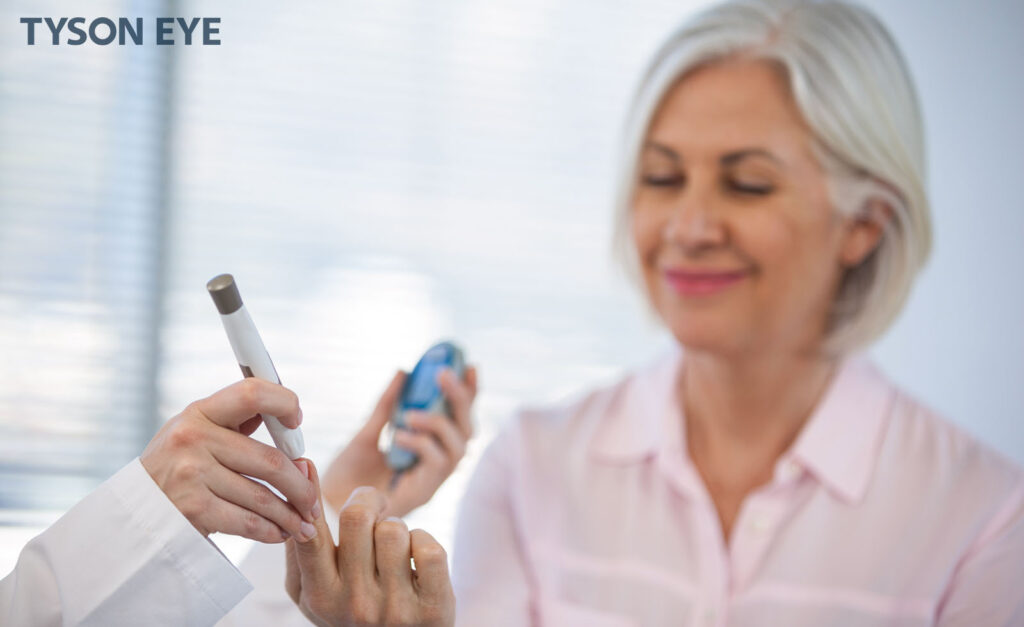If you have diabetes, it’s important to understand that you are at a higher risk for certain eye diseases that could cause severe vision loss or blindness. November is Diabetic Eye Disease Awareness Month, which was created so that diabetics are aware of the correlation between diabetes and eye disease, and to educate and encourage prevention, early detection, and treatment.
Understand Your Risk
Diabetes is the leading cause of vision impairment among working age Americans. Diabetics, as a group, have 25 times the usual risk of vision loss. Diabetes cause damage to the fragile, small blood vessels in the retina and can lead to a disease called diabetic retinopathy, the most common diabetic eye disease. Diabetes can also cause cataracts, a clouding of the lens of the eye, and glaucoma, which increases the fluid pressure inside the eye and can damage the optic nerve. Untreated, all these conditions can lead to vision loss.
Keep Your Diabetes in Check
Over time, the high sugar levels in the bloodstream of diabetic patients can cause damage to the circulatory system and blood vessels, which can impact your eyes as well as your heart, brain, kidneys, and more. For that reason, it’s important to treat your diabetes by regularly seeing your doctor, sticking with a healthy eating plan, being physically active, and checking your blood sugar and taking any prescribed medications every day.
Get Regular Eye Exams
Diabetic eye disease often may show no symptoms until you actually begin losing vision, which, at that point is too late to prevent vision loss. That’s why early detection and treatment are critical. If you have diabetes, be sure to have a comprehensive eye exam with dilation every year.
Monitor & Treatments
Fortunately, if you are diagnosed with a diabetic eye disease, there are many treatments available to help prevent vision loss. In fact, when detected early, diabetic retinopathy can be treated to reduce the risk of blindness by 90%. Treatments include new, effective medications as well as laser procedures. Additionally, if you have other conditions, cataract surgery is a highly successful procedure, and there are a range of glaucoma treatment options as well. If you are having no symptoms, your eye doctor may wish to closely monitor your condition with more frequent exams.
Come See Us
If you have diabetes and are concerned about your eye health, schedule an appointment with our dedicated and knowledgeable eye doctors and surgeons.
Tyson Eye is regarded as one of the premier eye care centers in Southwest Florida. Our surgeons and doctors have helped thousands of people enjoy better vision and have consistently introduced break-through technology to the area. Tyson Eye is committed to excellence by delivering modern technology with old fashioned concern. Contact us for a free consultation today or call 239-542-2020.
